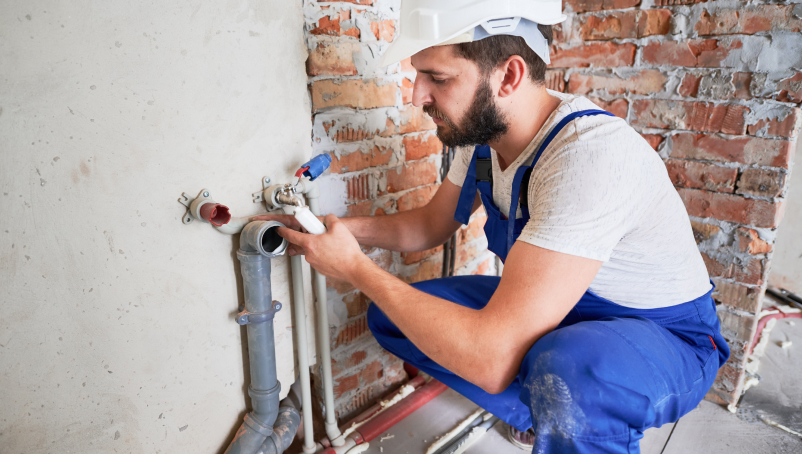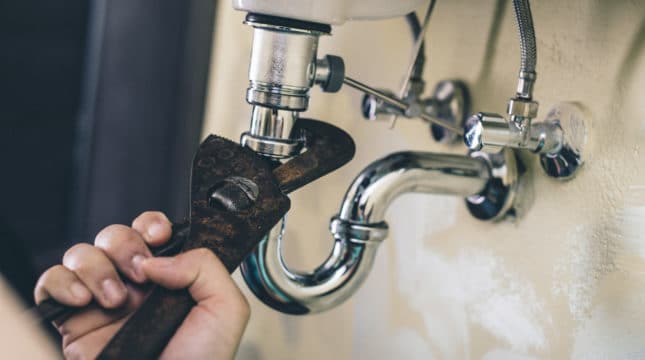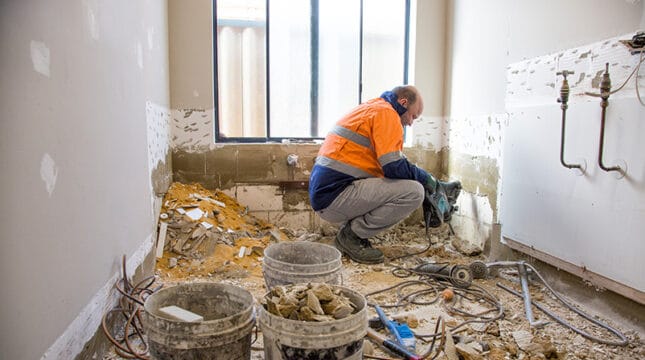Are Colorado plumbing licenses required?
Yes, Colorado requires plumbers to hold a valid state license to work legally. The Colorado State Plumbing Board, under the Department of Regulatory Agencies (DORA), oversees the process. There are three types of Colorado plumbing licenses: residential, journeyworker (previously journeyman plumber) and master plumber.
Unlike some other states, there is no contractor license in Colorado. If you want to be a plumber contractor and/or have a business, you need to have a master plumbing license and register as a plumbing contractor.
Insurance requirements for a Colorado plumbers license
Plumbing insurance protects your business from unexpected costs, accidents and liability issues. The right combination of coverage depends on your business needs and the Colorado laws that apply.
Workers’ Compensation insurance
Workers’ compensation insurance helps cover medical expenses and lost wages if an employee gets sick or hurt on the job. Colorado requires this coverage if you have employees, whether they’re part-time, full-time, or family members.
Learn more about workers’ compensation for contractors.
General Liability insurance
General liability coverage helps protect your business from claims of property damage or injuries to clients (or others) during a job. While it’s not required for licensure in Colorado, this policy’s broad coverage helps safeguard against many common liabilities businesses face.
Learn more about general liability insurance for contractors.
Commercial property insurance
Commercial property insurance helps safeguard your business if you own or rent a workspace. It covers your physical assets, like tools and inventory.
Business Owner’s Policy
A business owner’s policy, or BOP insurance, provides broad coverage of general liability and commercial property policies combined in a single, more cost-efficient bundle.
That means it can help cover damage that you or your employees may inadvertently cause to another person’s property and help protect your business inventory in the event of a fire or other covered event.
Tools and Equipment insurance
Your tools are an essential part of your work as a plumber, and tools and equipment insurance helps cover repair or replacement if they’re lost, damaged, or stolen.
Commercial Auto insurance
If you use a vehicle for your plumbing business, commercial auto insurance helps cover accidents, damage, or theft involving your work vehicle.
Colorado mandates the following minimum coverages:
- $25,000 for each person in an accident;
- $50,000 for all persons in any one accident; and
- $15,000 for property damage in any one accident.
Steps to get your Colorado plumbing license
The steps to get your Colorado plumbing license requires commitment and planning. You’ll need to start as a plumbing apprentice, working under a licensed plumber while building up your skills.
Once a plumbing contractor hires you, your employer has 30 days to submit an application to register you as an apprentice with the Colorado State Plumbing Board. You’ll get a registration card, and you’ll need to carry it with you while working, according to Colorado plumbing license requirements.
From there, the steps are similar for each license type — you’ll track your work hours, take and pass a plumbing exam through PSI Testing Agency, and submit the following:
- Your license application fee
- Your passing exam results
- Affidavit of experience forms to verify your work history
- Proof of your apprentice registration
You’ll also answer questions about your criminal history. An arrest, conviction, or disciplinary action doesn’t disqualify you from getting a Colorado plumbing license, but you must be honest about it. The state can deny your application or revoke your licensure down the road if you don’t accurately disclose the information.
Additional requirements for a plumbing license in Colorado depend on the specific license level.
Residential plumber
With two years (3,400 hours) of work experience, you can apply for a residential plumbing license in Colorado. You’ll need a 70% or higher score on the state’s licensing exam, which tests your knowledge of plumbing codes and techniques.
Journeyworker plumber
Four years (6,800 hours) of hands-on training makes you eligible to apply as a journeyworker plumber. Like the residential license, the exam requires a passing score of 70%.
Master plumber
If you’re aiming for a master plumber license, Colorado requires five years (8,500 hours) of professional fieldwork. This level of licensing comes with a higher bar — you’ll need to score at least 75% on the exam to qualify.
How long does it take to get your plumbing license in Colorado?
The time it takes to get licensed as a plumber in Colorado depends on the level you’re aiming for, so it can take anywhere from two to five years, based on license requirements. In addition to the practical experience you need for each level, don’t forget to factor in the time it takes to schedule and pass the state exam.
If you’re diligent about tracking your hours and scheduling exams, you can complete each level on time and keep your career moving forward.
Plumbing license renewals in Colorado
Colorado plumbing licenses expire in odd-numbered years at the end of February. You’ll need to renew it to keep your license active. You can renew up to six weeks before your license expires.
It’s important to note that the State Plumbing Board prefers to communicate by email, so keep an eye on your inbox for notices and other information about your license. A minimum of four
Licensees must complete at least eight hours of continuing education (CE) each year of the two-year licensing period. (16 hours total for the licensing period.) A minimum of four CE hours must be related to codes defined by the Board.
Colorado plumbing license reciprocity
The state of Colorado does not offer license reciprocity for any state or license type. If you’re licensed as a plumber in another state and want to work there, you can submit a copy of your out-of-state license to the Colorado Department of Regulatory Agencies with your application — but it doesn’t waive any of the training or exam requirements.





